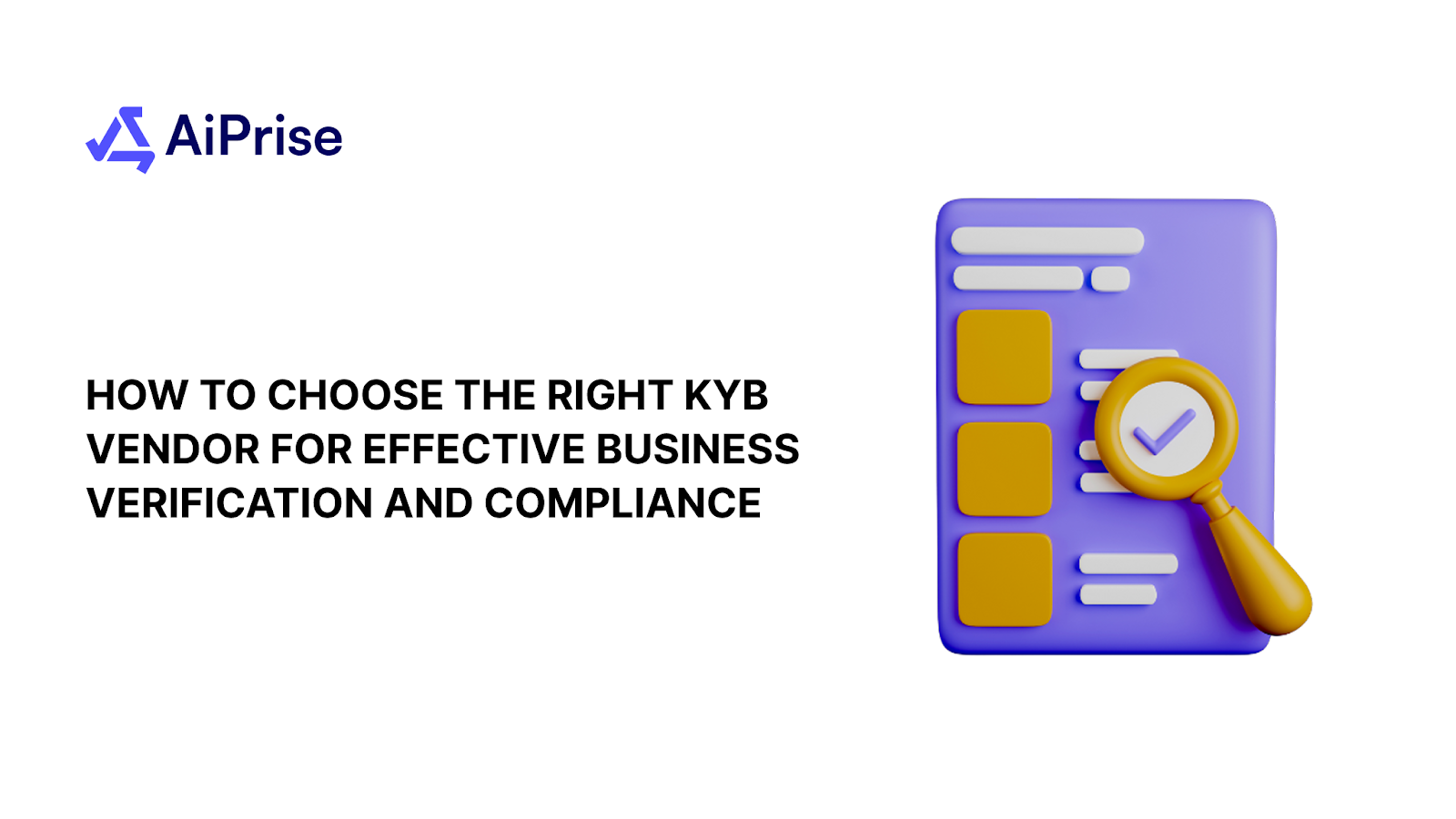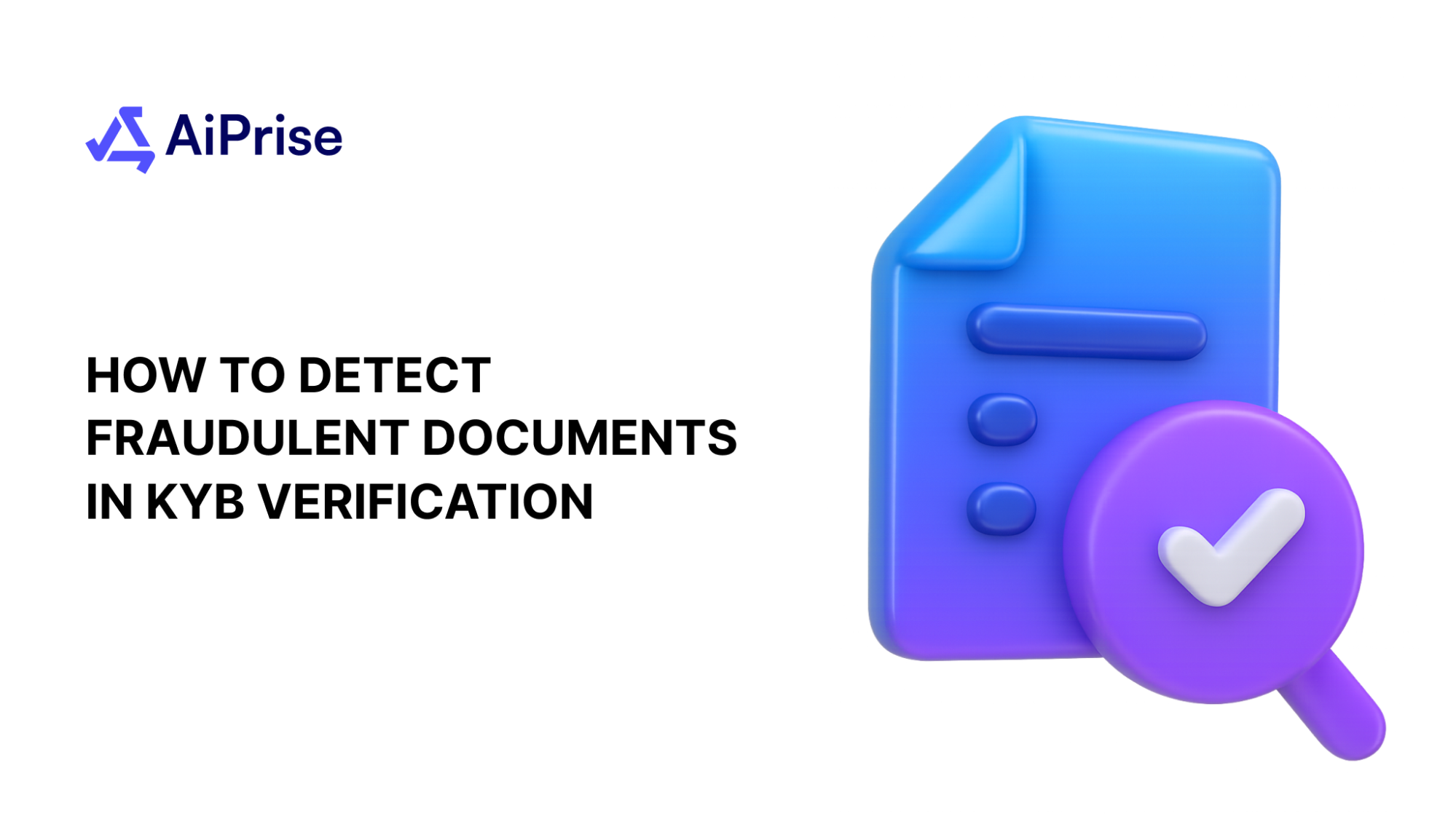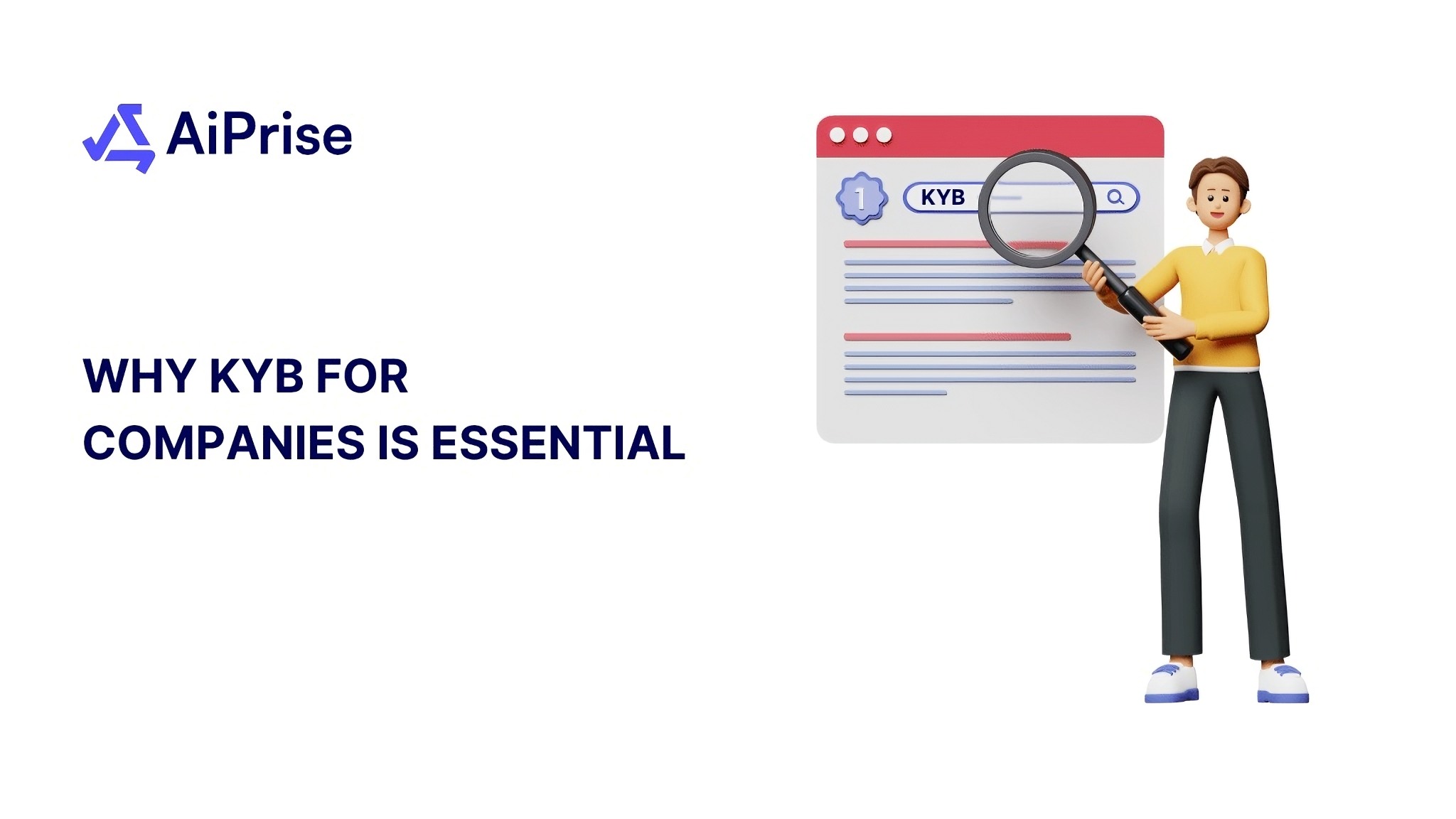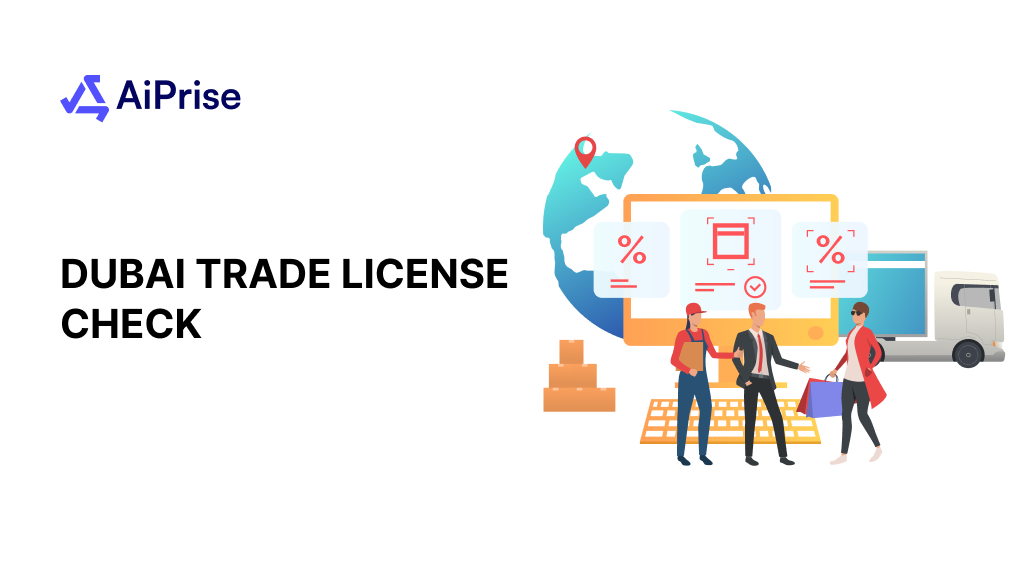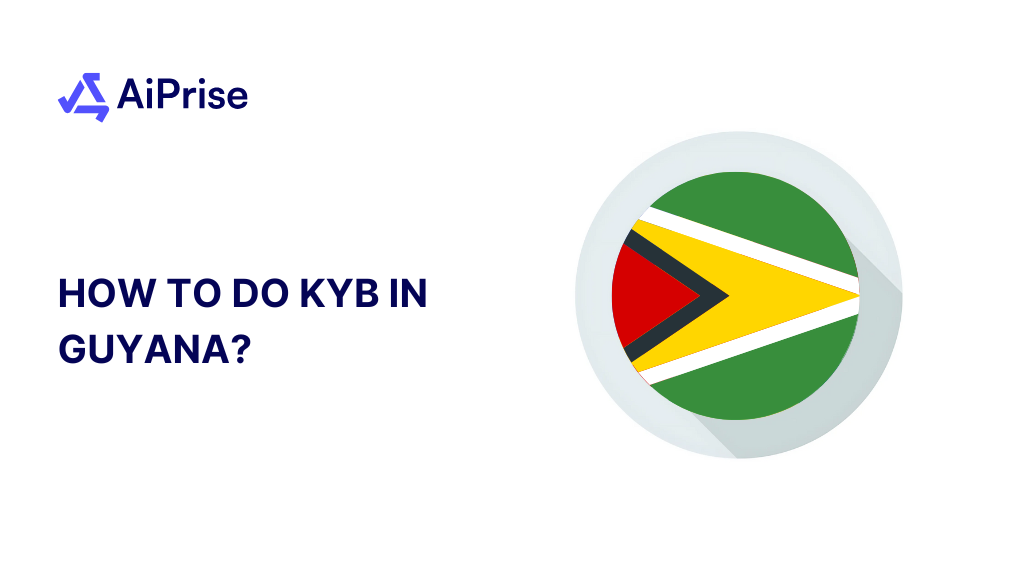AiPrise
7 min read
March 19, 2025
Kiribati Company Verification Guide

Key Takeaways










Kiribati, a Pacific island nation with a growing presence in the global economic sphere, presents unique challenges and opportunities for businesses. Conducting Know Your Business (KYB) checks ensures compliance, fosters transparency, and builds trust in business relationships within this unique jurisdiction.
This blog explores the nuances of KYB in Kiribati, covering its legal framework, key processes, and best practices to help your business maintain compliance and mitigate risks effectively.
KYB Scenario in Kiribati
The KYB scenario in Kiribati reflects the country’s efforts to align with international standards while addressing local governance challenges. The economy largely relies on fishing, agriculture, and tourism, making it vital for businesses to establish credibility. The KYB process helps mitigate risks associated with fraud and ensures that companies operate within legal parameters.
Given its small size and limited digital infrastructure, KYB processes often involve manual verification and close collaboration with local regulatory authorities. By conducting KYB in Kiribati, you ensure compliance and establish a foundation of trust and legitimacy with local partners and stakeholders.
Understanding the local context of KYB is essential as it sets the stage for compliance and risk management strategies.
Legal Framework Governing KYB in Kiribati
Kiribati’s legal framework for KYB aligns with international Anti-Money Laundering (AML) and Counter-Terrorism Financing (CFT) regulations, ensuring the integrity of its financial and business systems. Key laws include:
- Anti-Money Laundering and Counter-Terrorism Financing Act: Requires firms to conduct due diligence on partners to prevent financial crimes.
- Companies Ordinance: Governs business registration, reporting, and operational compliance in Kiribati.
Both local laws and international standards influence the legal framework for KYB in Kiribati. The Companies Act 2011 and various regulations established by the Ministry of Commerce, Industry, and Cooperatives govern business operations. These laws mandate that businesses maintain accurate records and provide necessary documentation during registration.
This legal backdrop is critical for ensuring businesses comply with national and international regulations.
Key Regulatory Bodies Overseeing KYB Processes
Several regulatory bodies play a pivotal role in overseeing KYB processes in Kiribati:
- Financial Supervisory Commission (FSC): Regulates financial institutions and enforces AML and CFT standards.
- Registrar of Companies: Maintains official records of registered businesses, providing critical data for KYB processes.
- Kiribati Revenue Authority (KRA): Oversees tax compliance and provides insights into the financial health of companies.
- Ministry of Commerce, Industry, and Cooperatives: Responsible for business registration and compliance.
- Kiribati Financial Intelligence Unit (FIU): Monitors financial transactions to prevent money laundering and fraud.
- Office of the Attorney General: Provides legal guidance on business operations and compliance matters.
Adapting to Kiribati's evolving regulatory requirements is essential for maintaining compliance and fostering trust. AiPrise's comprehensive solutions keep businesses aligned with these standards seamlessly.
Transitioning from regulatory oversight, let’s delve into the key elements that constitute the KYB process in Kiribati.
Key Elements of KYB Processes in Kiribati
Conducting KYB in Kiribati involves several following steps to verify and assess the legitimacy of business entities.
- Identification of Business Entity and Its Legal Structure: Verify the legal identity of the business by confirming its name, type, and legal structure. This helps establish its legitimacy and operational scope.
- Verification of Business Registration and Licenses: Ensure the business is registered with the Registrar of Companies and holds valid licenses to operate in its respective industry.
- Evaluation of Ownership and Control Structures: Identify the Ultimate Beneficial Owners (UBOs) to ensure transparency and compliance with AML and CFT regulations.
- Understanding and Mitigating Risk Profiles: Assess the business’s risk profile by evaluating its financial history, operational practices, and any potential red flags.
These elements collectively create a comprehensive KYB process tailored to Kiribati’s regulatory environment.
Documentation Requirements for KYB in Kiribati
To ensure a compliant KYB process, gather and verify the following documents:
- Business Registration Documents: Certificate of Incorporation and registration details from the Registrar of Companies.
- Tax Compliance Records: Taxpayer Identification Number (TIN) and recent tax filings.
- Ownership Details: Shareholder agreements and UBO declarations.
- Financial Statements: Audited financial records or bank references.
- Identification Documents: Passports or national IDs of directors and UBOs.
Having these documents ready ensures a smoother KYB process in Kiribati. Now, let’s explore the steps to conduct effective KYB in Kiribati.
Steps to Conduct KYB in Kiribati
Follow these structured steps to conduct KYB in Kiribati effectively:
- Collect Documentation: Gather required records, including business registration and ownership details.
- Verify Ownership: Identify and validate UBOs using official records and local databases.
- Cross-Check Compliance: Confirm AML and CFT standards adherence through regulatory bodies like the FSC.
- Assess Risk: Review financial records and operational practices to identify potential risks.
- Monitor and Update: Regularly update KYB records to reflect business operations or ownership changes.
This step-by-step approach ensures compliance while reducing risks in your business relationships.
Get insights into KYB practices in Romania here.
Challenges for KYB in Kiribati
Conducting KYB in Kiribati comes with its own set of challenges, including:
- Limited Digital Infrastructure: Manual processes dominate, making verification slower and labor-intensive.
- Complex Ownership Structures: Tracing UBOs in multinational businesses can be resource-intensive.
- Language and Cultural Barriers: Understanding local customs and languages is essential for smooth interactions.
- Geographical Isolation: The remote location can complicate communication and verification processes.
- Regulatory Changes: Keeping up with evolving regulations can be daunting for businesses as they need to maintain compliance.
Recognizing these challenges is essential for developing effective strategies to overcome them.
Best Practices for KYB in Kiribati
To handle these challenges effectively, consider implementing best practices:
- Stay Updated on Regulations: Regularly review changes in local laws affecting business operations.
- Utilize Technology Solutions: Leverage digital tools that streamline documentation collection and verification processes.
- Engage Local Experts: Collaborate with local consultants who understand the nuances of the regulatory environment.
- Maintain Up-to-Date Records: Regularly review and update KYB documentation to ensure ongoing compliance.
- Implement Real-Time Monitoring: Leverage tools that provide alerts for changes in compliance status or ownership structures.
Adopting these practices can significantly enhance your organization's ability to conduct effective KYB while ensuring compliance.
Future of KYB in Kiribati
As global standards evolve, so will the KYB approach in Kiribati. Increased emphasis on transparency and anti-money laundering initiatives will likely shape future regulations.
Additionally, technological advancements may streamline verification processes, paving the way for easier and more efficient compliance for businesses.
Companies like AiPrise, at the forefront of these innovations, can play a pivotal role in easing this adaptation process by providing advanced tools tailored to meet evolving requirements.
Anticipating these changes and leveraging cutting-edge solutions will enable organizations to adapt proactively while maintaining their commitment to compliance.
Conclusion
Establishing compliant and trustworthy business relationships in Kiribati requires more than just ticking regulatory boxes—it demands a strategic and proactive approach to KYB.
By aligning with local laws, addressing unique challenges, and leveraging innovative tools, you can ensure that your KYB process meets legal standards and strengthens your business partnerships.
Kiribati’s evolving regulatory environment offers opportunities for businesses willing to adapt and stay ahead. AiPrise provides the tools and expertise to simplify KYB processes while ensuring accuracy and compliance.
Transform your KYB efforts into a competitive advantage—schedule a demo today to explore how AiPrise can support your business.
You might want to read these...

Aiprise has helped streamline our KYB (Know Your Business) flow in 100+ countries. No other tool comes close.





Speed Up Your Compliance by 10x
Automate your compliance processes with AiPrise and focus on growing your business.


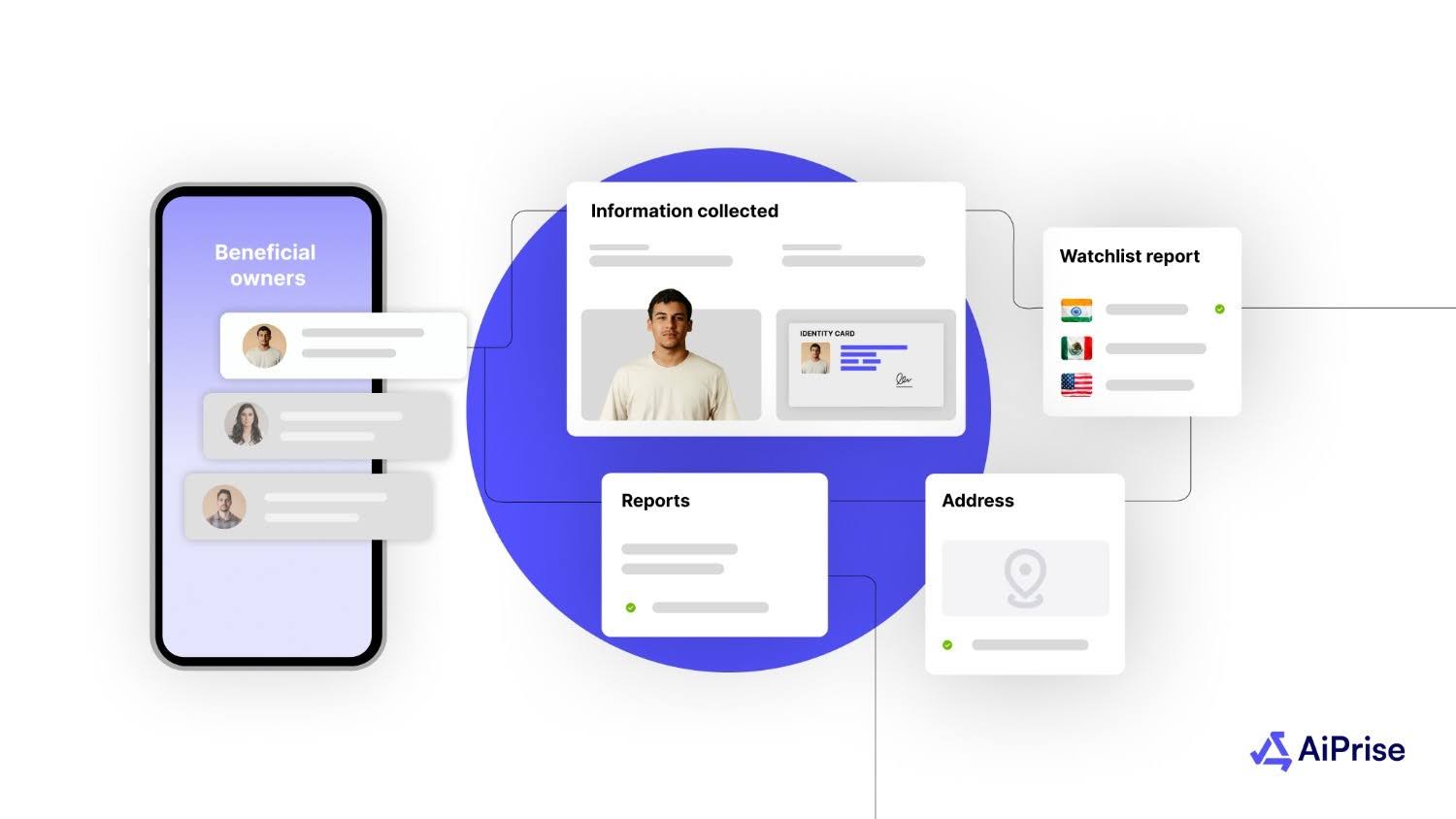

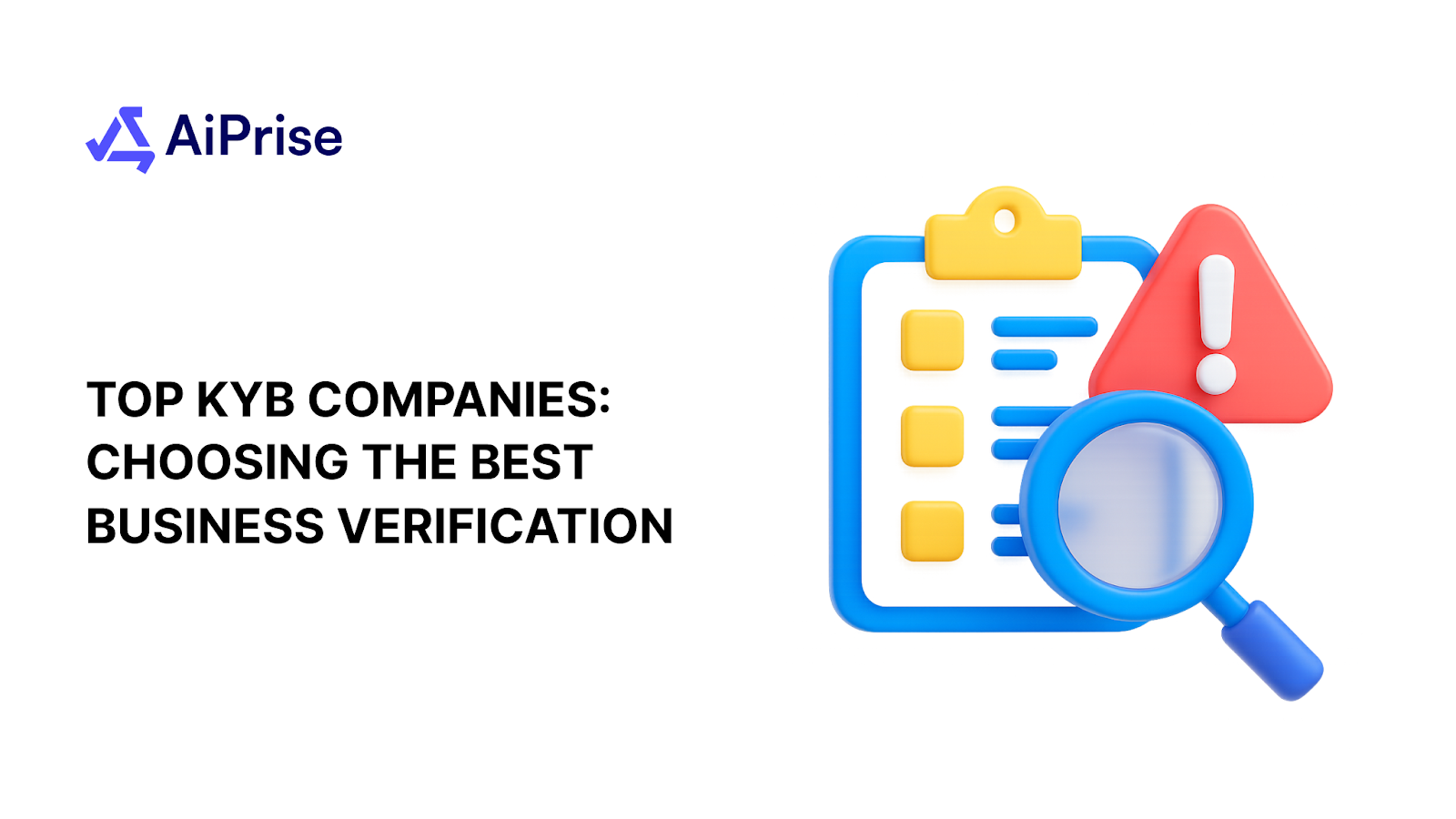
%20Can%20Improve%20Your%20Compliance%20Strategy.png)
